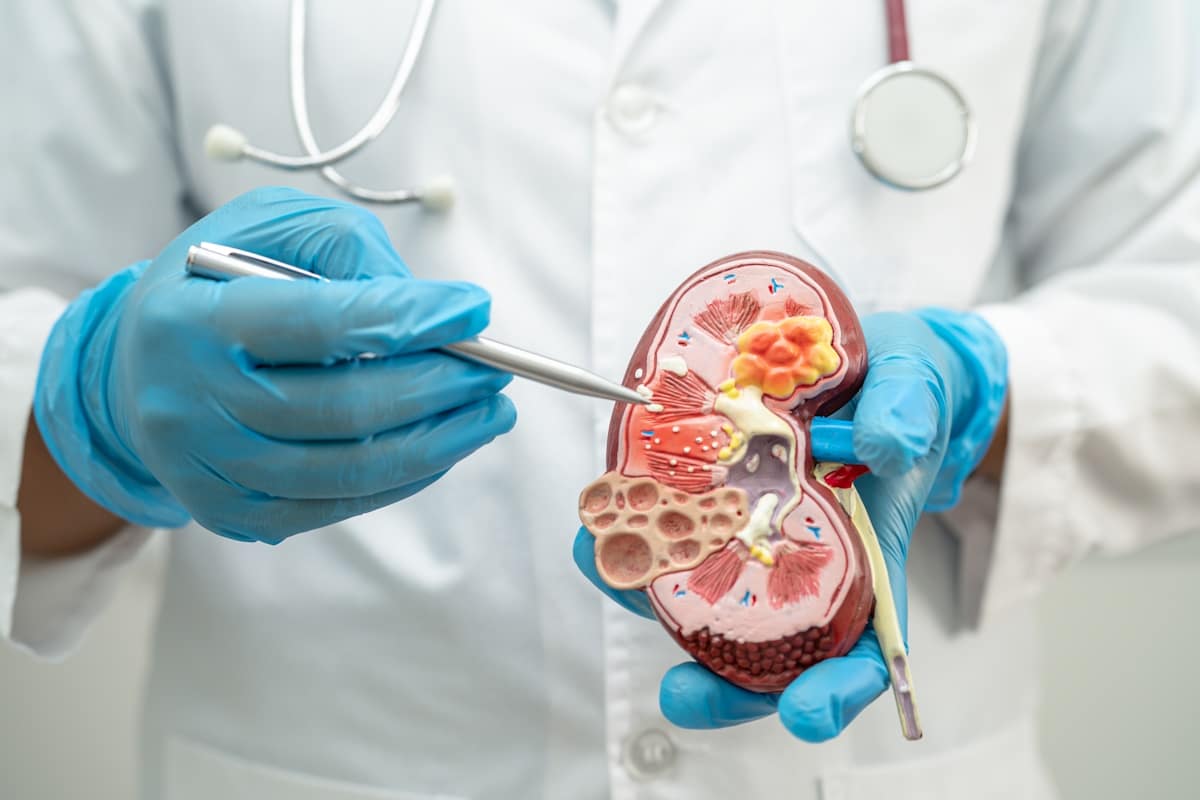When it comes to bodily infections, kidney infections stand as a significant concern, demanding immediate attention due to their potential to escalate into life-threatening conditions. As one of the body’s most industrious organs, our kidneys are vital in maintaining equilibrium within our internal environment. These bean-shaped powerhouses, nestled on either side of the spine, tirelessly filter waste, regulate fluid levels, produce hormones, and orchestrate the intricate dance of urine formation.
Much like a meticulously maintained exhaust system in a car, our kidneys ensure that waste flows out of the body seamlessly. Yet, when faced with a kidney infection, this finely tuned machinery signals distress, prompting us to heed its call for intervention.
Understanding the Origins
Kidney infections, medically termed pyelonephritis, often result from bladder infections (cystitis). Bacteria originating from a bladder infection can ascend through the urethra, the urinary tract’s conduit, ultimately infiltrating the kidneys and instigating infection. However, kidney infections may also manifest independently in individuals predisposed to kidney stones or possessing kidney abnormalities.
These infections predominantly affect one kidney and are more prevalent among children, the elderly, and pregnant women. Women, in particular, face heightened susceptibility due to the shorter urethra’s proximity to the anus, facilitating bacterial migration.
Decoding the Symptoms
Kidney infection symptoms typically manifest swiftly, signaling the body’s distress. Individuals may experience:
- Lower back pain below the rib cage, indicative of kidney involvement.
- High fever accompanied by chills, shivers, and malaise.
- Abdominal discomfort.
- Nausea, vomiting, and diarrhea.
- Hematuria (blood in urine), cloudy or foul-smelling urine.
- Painful urination and frequent urges to urinate.
In elderly individuals, symptoms may be subtle, presenting as general malaise or confusion, underscoring the importance of vigilant monitoring and prompt testing.
Diagnostic Measures and Treatment
Prompt diagnosis and treatment are imperative to avert potential complications. A dipstick urine test, conducted under medical supervision, is the primary diagnostic tool for detecting signs of infection. Upon confirmation, treatment entails a course of antibiotics tailored to eradicate bacterial pathogens, typically spanning 7 to 14 days. Pain management may be adjunctive, with cautious avoidance of certain painkillers to safeguard kidney function.
Adequate hydration is paramount to prevent dehydration, and most individuals can be managed at home unless symptoms warrant hospitalization, particularly in severe cases or individuals with underlying health conditions.
Mitigating Risks and Complications
While most individuals recover fully with appropriate treatment, kidney infections may precipitate severe complications in the minority, including sepsis, premature labor in pregnant women, or kidney tissue damage. Proactive measures to prevent bladder infections, such as adequate hydration, timely urination, and meticulous hygiene practices, serve as frontline defenses against kidney infections.
By adhering to these preventive measures, individuals can mitigate risk, safeguard their kidney health, and avert potential complications. Vigilance and proactive healthcare measures ensure that our kidneys continue to function optimally, safeguarding our overall well-being.
Dr. David Samadi is the Director of Men’s Health and Urologic Oncology at St. Francis Hospital in Long Island. He’s a renowned and highly successful board certified Urologic Oncologist Expert and Robotic Surgeon in New York City, regarded as one of the leading prostate surgeons in the U.S., with a vast expertise in prostate cancer treatment and Robotic-Assisted Laparoscopic Prostatectomy. Dr. Samadi is a medical contributor to NewsMax TV and is also the author of The Ultimate MANual, Dr. Samadi’s Guide to Men’s Health and Wellness, available online both on Amazon and Barnes & Noble. Visit Dr. Samadi’s websites at robotic oncolo gy and prostate cancer 911.


